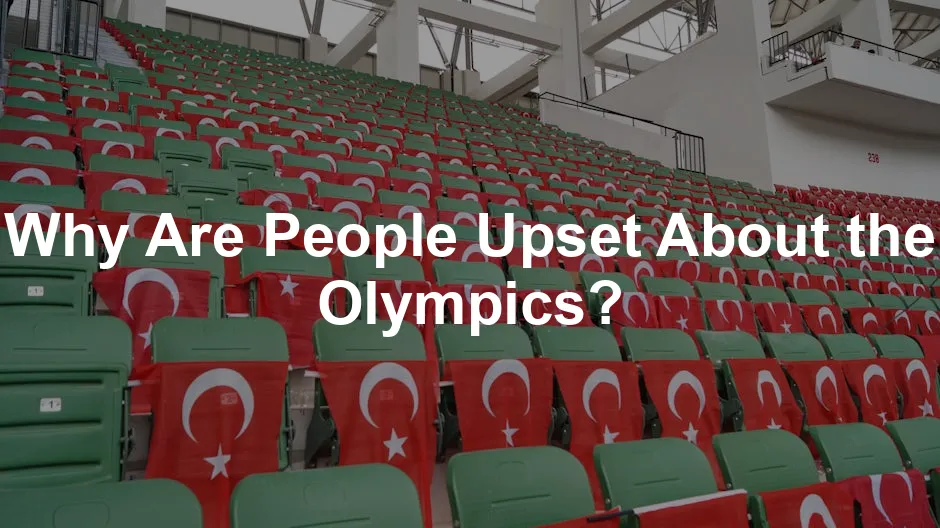
Why Are People Upset About the Olympics?
Introduction
The Olympic Games have sparked growing discontent among various groups. Many feel the event no longer embodies its original spirit. A mix of political, social, and ethical concerns contribute to this sentiment. In this section, we will discuss key reasons for this discontent, focusing on political controversies, human rights issues, and the impact on local communities.
If you’re a fan of the Olympics and want to commemorate the spirit of the Games, check out some fantastic Olympic Games memorabilia. These collectibles can spark conversations and perhaps even help you relive those thrilling moments from the Games!
Summary and Overview
Public sentiment towards the Olympics has shifted dramatically in recent years. Many criticize the Games for political tensions, such as the participation of Russian and Belarusian athletes amid the ongoing Ukraine conflict. Additionally, issues like forced evictions and gentrification in host cities raise ethical concerns. Human rights violations, including the treatment of athletes from marginalized communities, further fuel discontent. These controversies tarnish the Olympic image, transforming it from a celebration of unity into a source of division and disappointment. With the Games often overshadowed by these pressing issues, public enthusiasm has waned, leading many to question their relevance in today’s world.
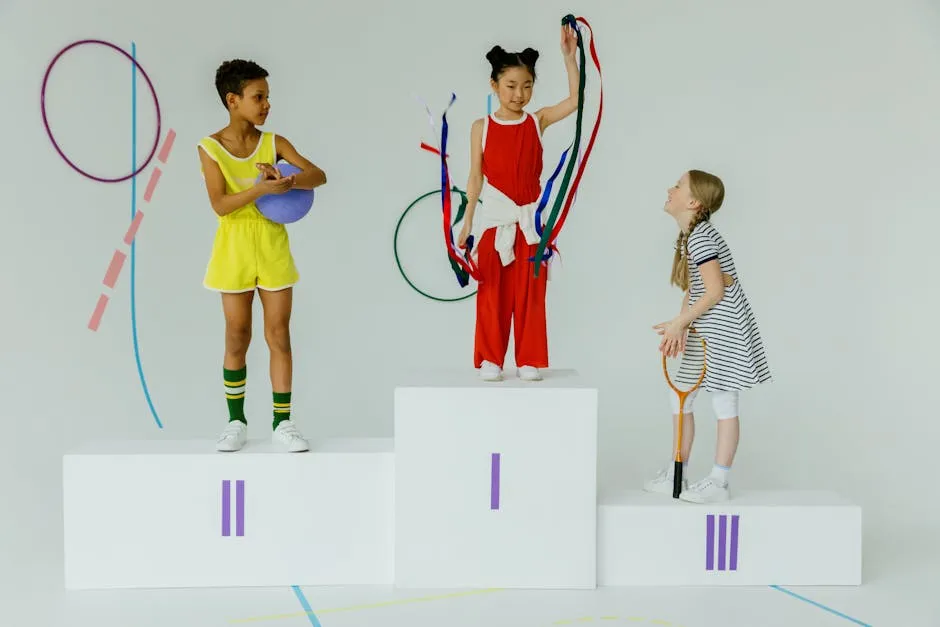
If you’re looking to dive deeper into the history and controversies surrounding the Olympics, consider picking up a few sports history books. They can provide valuable insights into the evolution of the Games and the social issues surrounding them.
Political Controversies
The Participation of Russian and Belarusian Athletes
The ongoing conflict in Ukraine has raised serious questions about the participation of Russian and Belarusian athletes in the Olympics. As the war continues, many feel it’s inappropriate for these countries to compete. The International Olympic Committee (IOC) decided to allow athletes from these nations to participate as neutrals, which sparked outrage. Critics argue this decision undermines the spirit of sportsmanship and sends mixed messages about accountability.
Public reactions have been intense, with numerous countries, including Ukraine, calling for a boycott. Athletes and fans alike feel disappointed, as they wanted the Games to represent unity and peace. The IOC’s decision appears to prioritize participation over the broader implications of the ongoing conflict. This has led to heated debates about the role of sports in times of political turmoil and the responsibility of international bodies to uphold ethical standards.

Human Rights Issues
Treatment of Athletes from Disputed Regions
The treatment of athletes from war-torn regions has drawn significant criticism towards the Olympics. Many believe the Games fail to adequately address human rights violations. Athletes from countries like Ukraine face immense challenges, including displacement and trauma caused by the ongoing conflict. These athletes often struggle to compete while dealing with the emotional toll of their circumstances.
Backlash against the Olympics has intensified, with activists accusing the IOC of neglecting human rights issues. Critics argue that the focus on medals distracts from the more pressing matters at hand. They call for the IOC to take a stronger stance against human rights violations and to ensure that all athletes compete under fair conditions. As these concerns grow, the integrity of the Olympics is increasingly questioned, overshadowing the celebration of athletic talent.
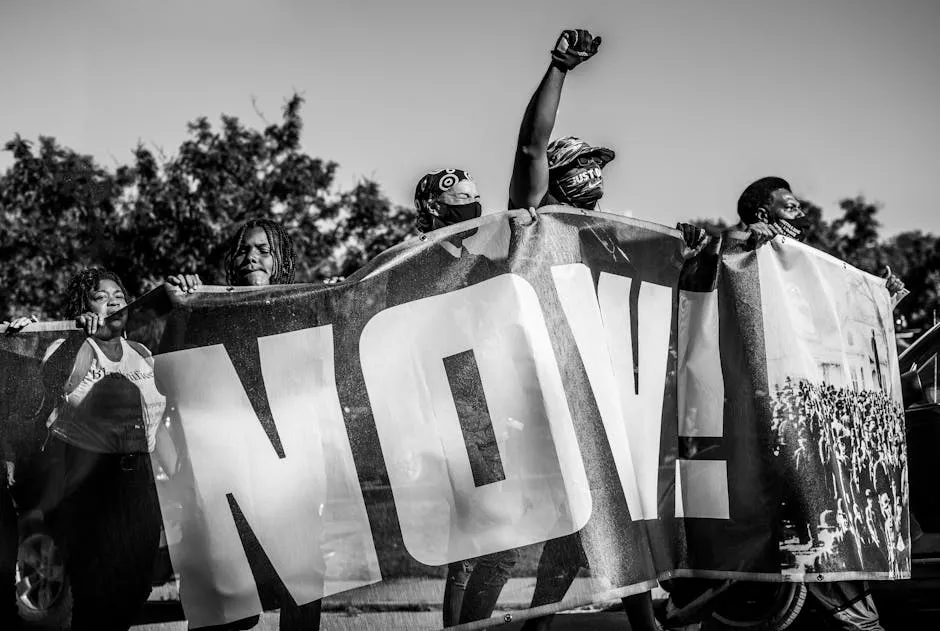
To support your own fitness journey, check out these fitness trackers. They can help you monitor your progress and stay motivated, just as athletes do during their rigorous training!
Social Issues
Displacement and Gentrification
The impact of the Olympics on local communities is becoming a hot topic. Many host cities, including Paris, face criticism over the eviction of marginalized groups. As cities prepare for the Games, authorities often prioritize infrastructure over community needs. This leads to forced evictions and the clearing of neighborhoods, displacing vulnerable populations.
Critics argue that Olympic development perpetuates gentrification, pushing locals out and changing the character of neighborhoods. Many feel that the promise of economic benefits for host cities does not justify the social costs. Activists are vocal about the need for change, urging the IOC to consider the ethical implications of hosting the Games. The ongoing displacement issues highlight a growing divide between the ideals of the Olympics and the reality experienced by many residents.
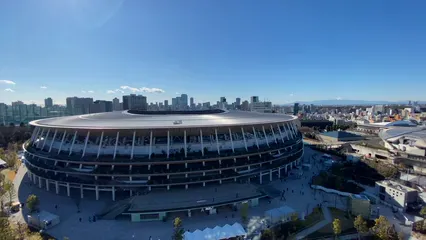
Gender and Inclusion
The Hijab Ban for Muslim Athletes
The recent hijab ban for Muslim athletes has ignited significant outrage. Many view this decision as a direct attack on female athletes’ rights to express their religious beliefs. The French National Olympic and Sports Committee‘s stance contradicts the International Olympic Committee‘s (IOC) principles of inclusivity and respect for athletes’ identities.
Muslim women, who often wear hijabs for personal and spiritual reasons, now face exclusion from competitions. Critics argue this ban not only marginalizes these athletes but also sends a troubling message about gender equality in sports. The Olympics, intended to promote unity, now seem to reflect broader societal issues regarding acceptance and inclusion.
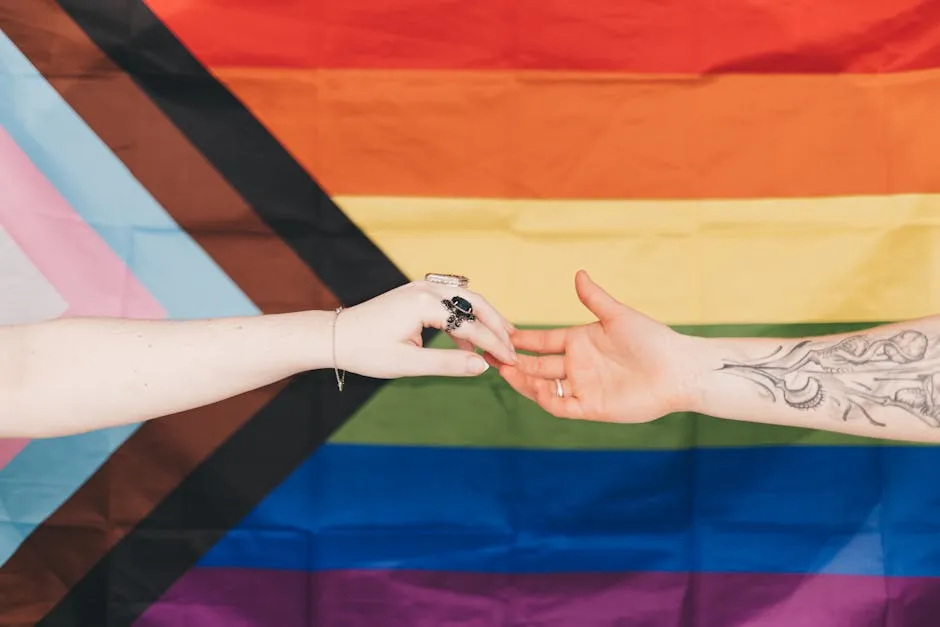
This backlash highlights a growing concern about the need for diversity within sports. Many believe that instead of restricting athletes’ freedom, the focus should be on creating an environment where everyone feels welcome. As the Olympic Games approach, this issue serves as a reminder of the ongoing struggles for inclusivity in sports, challenging the notion that the Games are a celebration of all athletes.
Health and Safety Concerns
COVID-19 and Public Health
The pandemic has cast a long shadow over the Olympics. With rising COVID-19 cases, concerns about athlete safety and public health remain paramount. Many people fear that hosting such a large-scale event poses significant health risks, not just for participants but for the general public as well.
The International Olympic Committee (IOC) implemented various measures, but skepticism lingers. Some question the effectiveness of these protocols, especially as new variants emerge. Public sentiment reflects unease; many believe that the health of athletes and spectators could be compromised.
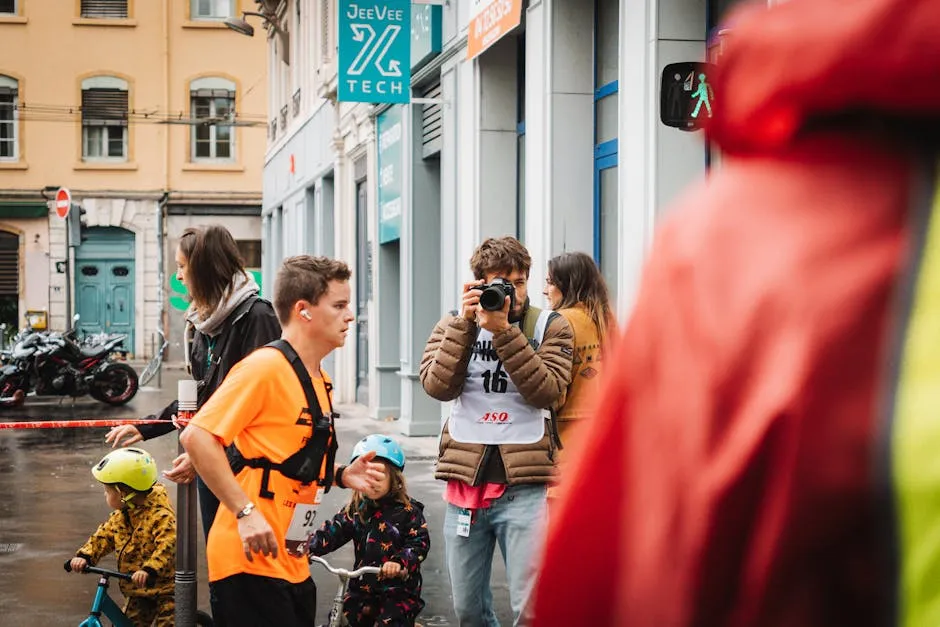
As the Games draw closer, officials are under pressure to balance excitement with safety. Will the Olympics be a moment of global unity, or will they become a health crisis? This uncertainty adds another layer of complexity to an already contentious event.
Environmental Concerns
Sustainability Issues
The environmental impact of hosting the Olympics has sparked considerable debate. Many people criticize the contradiction between organizers’ promises of sustainability and the reality of Olympic preparations.
Host cities often invest heavily in infrastructure, leading to significant environmental degradation. Critics argue that the massive construction projects disrupt local ecosystems and contribute to pollution. Furthermore, the promise of a “green” Olympics often falls short, as cities struggle to implement effective sustainable practices.

Activists demand accountability, urging the International Olympic Committee to prioritize genuine environmental responsibility. As concerns about climate change grow, the pressure on the Olympics to become a model for sustainability intensifies. The challenge lies in reconciling the grandeur of the Games with the urgent need for ecological preservation.
Economic Concerns
Cost of Hosting the Olympics
Hosting the Olympics comes with a hefty price tag. Cities often spend billions on infrastructure, security, and facilities. This financial burden frequently falls on local taxpayers. Many residents feel frustrated, especially when essential services suffer due to Olympic spending.
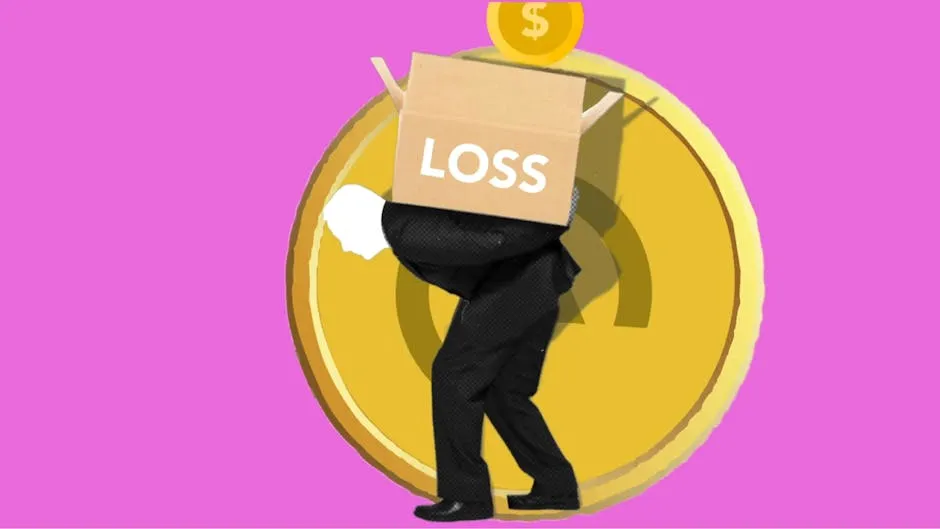
Take Tokyo, for instance. The city faced significant costs during the 2020 Games, even with the event postponed due to the pandemic. Public dissatisfaction grew as citizens questioned the allocation of funds. Why invest so much in an event when local schools and hospitals need support?
Moreover, the promise of economic benefits often fails to materialize. Many host cities see little return on their investments. Instead, they grapple with debt long after the torch is extinguished. This situation raises serious concerns about the long-term impact of the Olympics on local communities. With public sentiment shifting, many are calling for a reevaluation of Olympic funding and priorities.

While you’re pondering how the Olympics impact local economies, consider enhancing your own kitchen with an air fryer. They are perfect for making healthy meals quickly—after all, athletes need to eat well!
The Role of Media and Public Perception
Changing Attitudes Towards the Olympics
Media coverage plays a crucial role in shaping public perception of the Olympics. In recent years, the narrative has shifted. Instead of celebrating athletic achievements, coverage often highlights controversies and scandals. This shift has led many to question the Games’ relevance.
Younger generations, in particular, show less interest in the Olympics. They often view the event as outdated or disconnected from their values. Issues like sportswashing and human rights violations draw critical attention. The Olympics can appear more like a distraction from global issues rather than a celebration of unity.
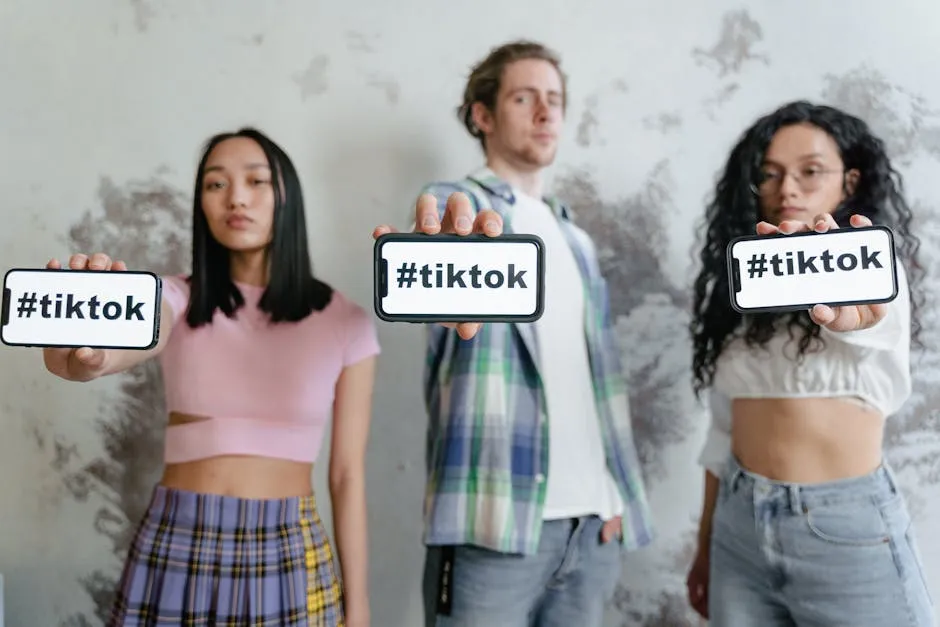
Social media amplifies these sentiments, providing a platform for diverse voices. Activism surrounding the Games has gained traction, with more people expressing their concerns. This generational shift highlights a growing disconnect between traditional Olympic ideals and modern values. As public interest wanes, the future of the Games hangs in the balance.
Conclusion
In summary, the rising discontent surrounding the Olympics stems from various economic and social issues. The financial burden on host cities often overshadows the intended spirit of the Games. Media narratives reflect changing attitudes, particularly among younger audiences, who demand greater accountability.
As these controversies unfold, it’s time to reassess the values and ideals associated with the Olympics. The future of the Games may depend on addressing these concerns and ensuring that they truly represent global unity and ethical responsibility. What do you think? Share your thoughts in the comments below!

For those looking for a way to unwind after all this Olympic talk, consider trying out a meditation cushion. It’s a great way to relax and recharge your mind after absorbing all this heavy content!
FAQs
Why are some athletes banned from competing in the Olympics?
Some athletes face bans due to political tensions and violations. The IOC can suspend countries based on their actions, like Russia’s invasion of Ukraine. Such decisions often reflect broader political issues. Critics argue these bans can overshadow the spirit of competition. The impact of these actions on athlete participation raises questions about fairness and equity. How do we balance politics with sports?
What are the main controversies related to the 2024 Paris Olympics?
The 2024 Paris Olympics face multiple controversies. Human rights violations, especially regarding athlete treatment, are significant concerns. Issues include the hijab ban and discrimination against marginalized groups. Additionally, the inclusion of athletes from politically contentious regions has sparked debate. Critics argue these issues compromise the Games’ integrity. Will the Olympics uphold their values amid these challenges?
How do financial burdens of the Olympics affect host cities?
Hosting the Olympics can financially strain cities. Many invest billions in infrastructure and security, often at taxpayers’ expense. This spending can divert funds from essential services. Some residents feel frustrated when local needs are overlooked for Olympic preparations. Critics argue the promised economic benefits rarely materialize. How can cities balance Olympic costs with community needs?
Why do some young people express indifference towards the Olympics?
Young people are increasingly indifferent towards the Olympics. Many view the event as outdated and disconnected from their values. The influence of social media often shifts focus away from traditional sports. Additionally, issues like sportswashing and discrimination raise concerns. This generational shift reflects changing priorities in sports and activism. Are the Olympics losing their appeal to younger audiences?
What role does the IOC play in addressing these controversies?
The IOC has a critical responsibility to address controversies. They must respond to public concerns about human rights and athlete treatment. Critics often question the IOC’s effectiveness in enforcing ethical standards. Their decisions can significantly impact the Olympics’ reputation and integrity. How will the IOC navigate these complex issues moving forward?
Please let us know what you think about our content by leaving a comment down below!
Thank you for reading till here 🙂 If you’re planning a trip to the next Olympic host city, don’t forget to grab a travel guide to make the most of your experience!
All images from Pexels




